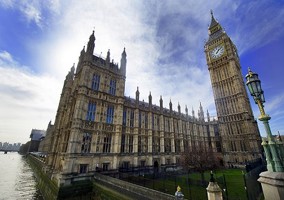The Charity Commission may have “created a climate where public confidence may have been eroded, rather than public trust being enhanced”, Sir Stuart Etherington, the former chief executive of NCVO has said.
In an article for Civil Society Voices, Etherington says that the sector needs to think through what a good model for charity regulation would look like.
He also cautions that the ongoing coronavirus crisis will make it difficult for charities to comply with regulation as it is currently framed.
He writes: “What should the sector be seeking from its regulatory structure? The narrow definition of regulation and pronouncements from the Charity Commission have created a climate where public confidence may have been eroded, rather than public trust being enhanced.
“It [regulation] should be based on a public interest framework, which is not the same thing as public opinion. One thing is for sure, voluntary organisations suffering significantly as a result of the reduction of income are not going to have the resources to respond to the level of compliance implied by current narrow view of regulation. So, the framework will need to change.”
The Charity Commission has previously said it is taking a flexible approach during the crisis. It did not wish to comment on Etherington's article.
Covid-19 crisis and the charity sector
The former NCVO chief adds in his article that the civil society response to the pandemic has “illustrated the strength of altruism, generosity and a rise in social capital”.
He says that the sector must now reflect on what policy changes are needed in the longer term, to recover from the significant economic downturn.
“It should be arguing for a strategic agenda and recovery based on wellbeing, including a green new deal and assisting government in developing the levelling up agenda,” he writes.
Etherington says that one of the difficulties experienced by the sector in the pandemic has been the coordination of national programmes and grassroots activity.
“This is not new; on a much smaller scale it was true of the Grenfell fire. The lack of local capacity is key to this,” he says. He adds that the volunteering response to the pandemic has been “incredible” on a national and a local level.
He concludes: “Although the sector has inevitably been trying to deal with the immediate crisis, it needs to be part of the debate about the type of society we wish to be. There are straws in the wind which point the way to a different set of principles and a different approach to what we value.
“The voluntary sector needs to articulate the role that it will play as we rebuild together.”
Related articles











